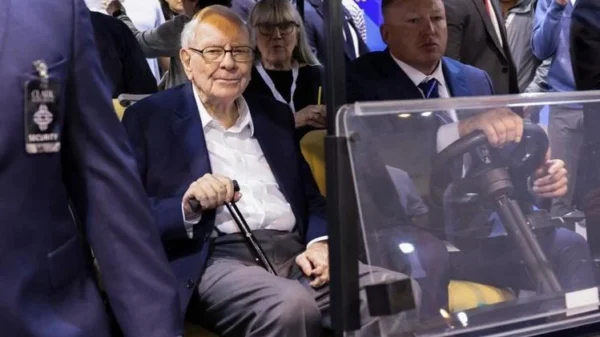Berkshire Shareholders Reject Climate, Diversity, and China Proposals
At Berkshire Hathaway’s annual meeting, shareholders decisively rejected six proposals concerning environmental and social policy issues, all of which Warren Buffett and the company’s board opposed. Despite overwhelming opposition from shareholders, the proposals addressed various topics ranging from climate change disclosure to workplace diversity and safety monitoring at the BNSF railroad unit.
Shareholders voted against two proposals urging Berkshire’s insurance and energy operations to provide more transparency regarding their efforts to address climate change and greenhouse gas emissions. Additionally, a proposal advocating for increased disclosure about initiatives promoting diversity, equity, and inclusion in the workplace was also rejected.
Furthermore, shareholders rejected a proposal to establish a board-level committee to oversee safety at the BNSF railroad unit. Another proposal, seeking annual reporting on Berkshire’s dependence on the Chinese government, was also rejected by significant margins.
Notably, Berkshire’s 2008 investment in the Chinese electric car company BYD was referenced in the context of the proposal related to the Chinese government. However, Berkshire began reducing its stake in BYD in 2022.
The outcome of the votes was largely expected, given that Warren Buffett holds special shares granting him a 31% voting stake in Berkshire. This substantial ownership stake makes it challenging for proposals opposed by Buffett to gain traction and be adopted.
Despite rejecting these proposals, Berkshire Hathaway’s annual meeting allowed shareholders to express their views on critical environmental and social issues. However, the significant influence of Warren Buffett’s voting stake underscores the limitations shareholders face when seeking to enact changes against the wishes of Berkshire’s leadership.




































Comment Template